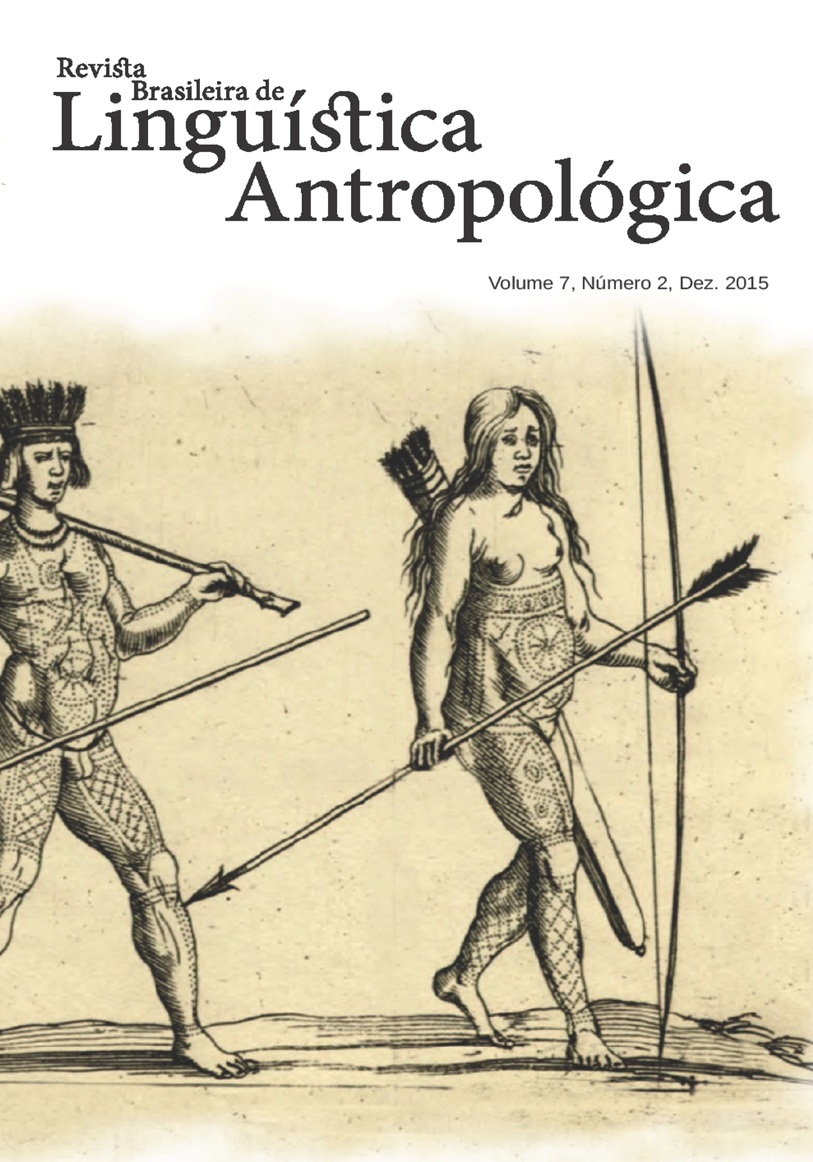Complemento de verbos de modalidade, manipulação e de cognição-elocução em Xikrín do Cateté
DOI:
https://doi.org/10.26512/rbla.v7i2.20603Keywords:
Xikrín. Subordonation. Coordination. Completive clauses. Nominalizations.Abstract
In this paper we describe what corresponds in Xikrín to dependent or subordinate completive clauses in other world languages, focusing on the investigation of its nature ”“ verbal or nominal ”“, as well as on the factors motivating them. We start with a brief introduction about strategies displayed by natural languages to express subordinate clauses, which is followed by a description of the corresponding structures found in Xikrín.
Downloads
References
Dixon, R. M. W. 2010a. Basic linguistic theory. v. 2. Oxford: Oxford University Press.
Dixon, R. M. W. 2010b. Basic linguistic theory. v. 3. Oxford: Oxford University Press.
Givón, T. 2001. Syntax: a introduction. v. II. Amsterdan: John Benjamins Publishing Press.
Noonan, M. Complementation. In: SHOPEN, Timothy (ed). Language typology and syntactic description. v. 3. Cambridge: Cambridge University Press, 2007.
Rodrigues, A. D. 1986. Línguas brasileiras. Para o conhecimento das línguas Indígenas. São Paulo: Edições Loyola.
Thompson, Sandra A. & R. Logacre. Adverbial clauses. 1985. In Timothy Shopen (ed). Language typology and syntactic description. v. 2. Cambridge: Cambridge University Press.
Downloads
Published
How to Cite
Issue
Section
License
Copyright (c) 2016 Revista Brasileira de Linguística Antropológica

This work is licensed under a Creative Commons Attribution 4.0 International License.
Authors who publish in RBLA agree to the following terms:
a) Authors maintain the copyright and grant the journal the right of first publication, and the work is simultaneously licensed under the Creative Commons Attribution License, which allows the sharing of the work with recognition of the authorship of the work and initial publication in this journal.
b) Authors are authorized to assume additional contracts separately, for non-exclusive distribution of the version of the work published in this journal (eg, publish in an institutional repository or as a book chapter), with recognition of authorship and initial publication in this journal.
c) Authors are allowed and encouraged to publish their work online (eg, in institutional repositories or on their personal page) at any point before or during the editorial process, as this can generate productive changes, as well as increase impact and citation of the published work.







